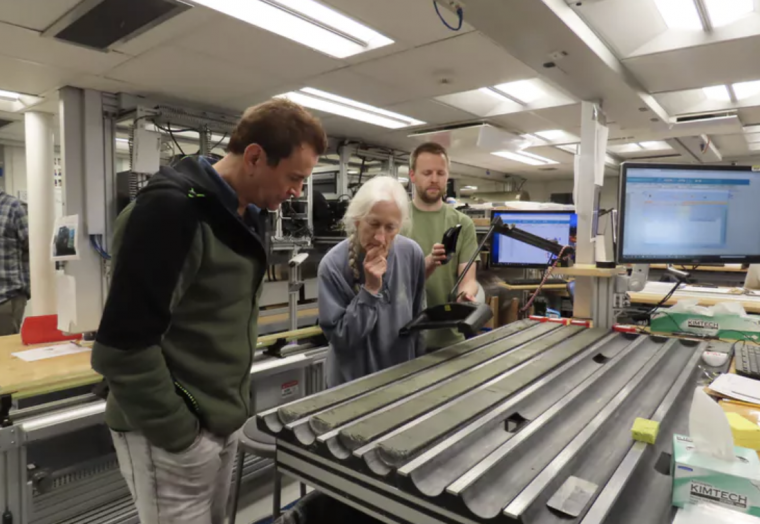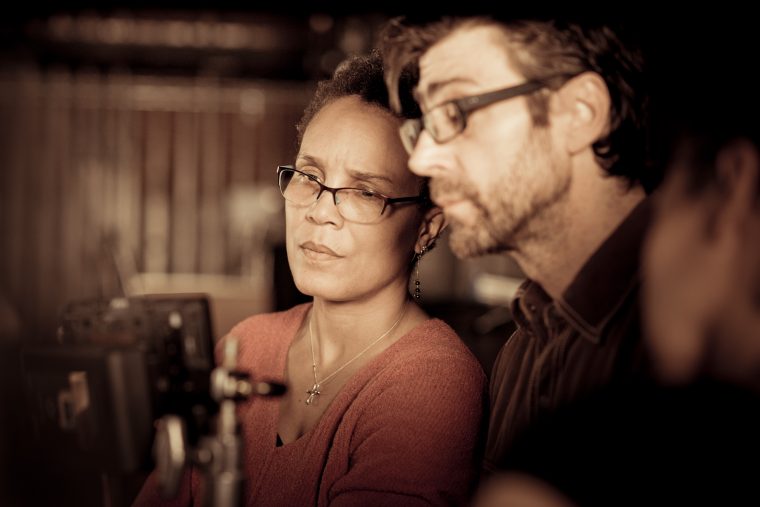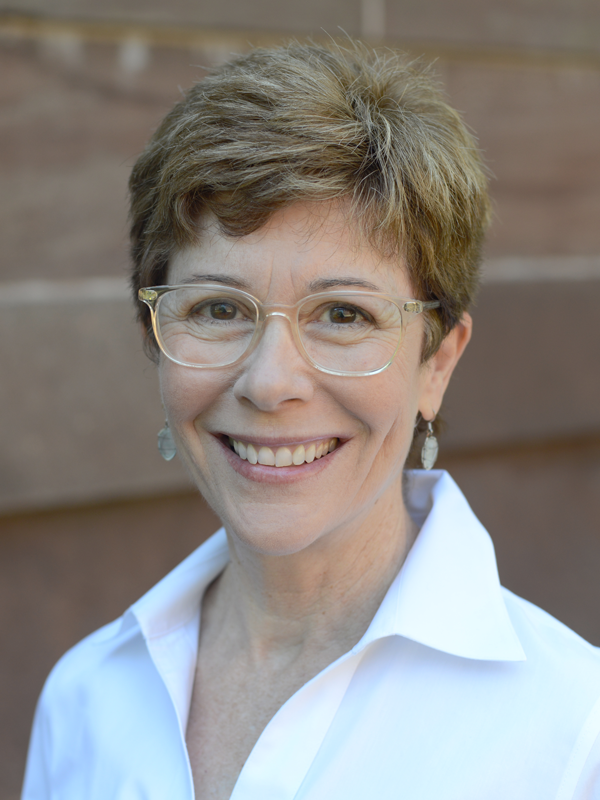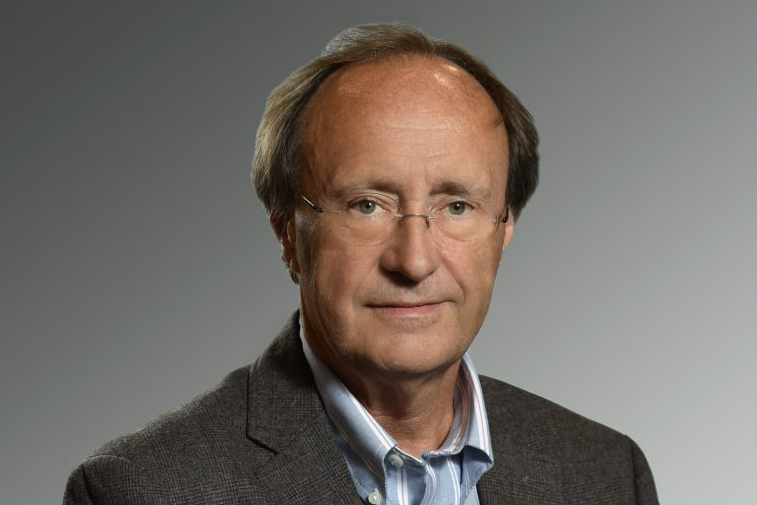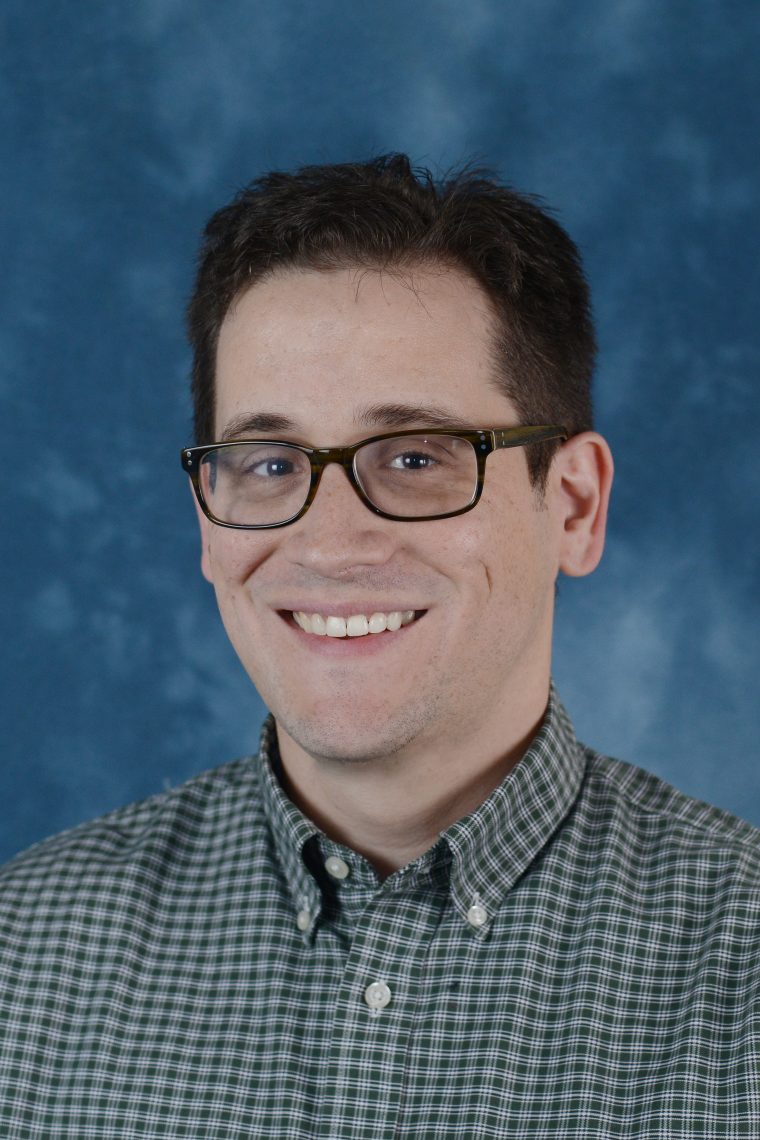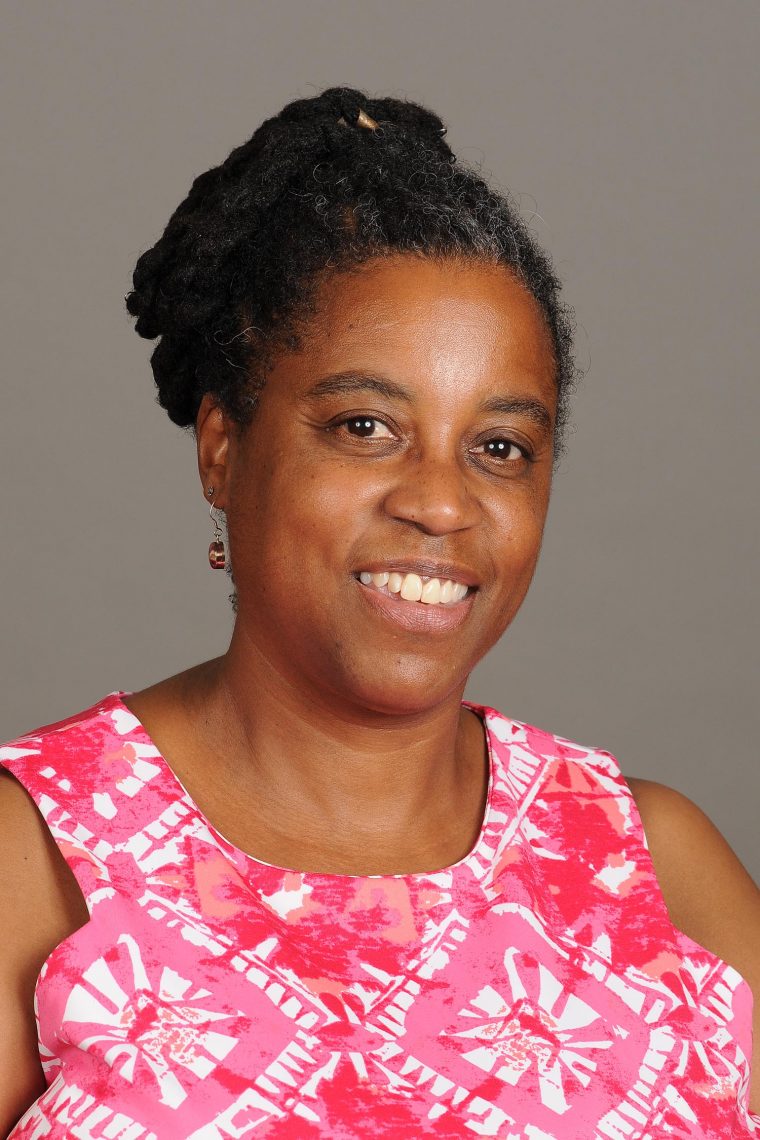Wesleyan faculty frequently publish articles based on their scholarship in The Conversation US, a nonprofit news organization with the tagline, “Academic rigor, journalistic flair.” In a new article, Professor of Earth and Environmental Sciences Suzanne O'Connell writes about her work on board the JOIDES Resolution research vessel in the Scotia Sea, drilling for sediment core samples to study how much and how fast the Antarctic ice sheets melted between 2.5 to 4 million years ago, the last time atmospheric CO2 was at the same level as today. (Read more about O'Connell's experience in this AAAS article.) 60 days in Iceberg Alley, drilling…
Wesleyan’s College of Film and the Moving Image (CFILM) is launching the Wesleyan Documentary Project, an initiative to teach, support, and produce nonfiction film and video. Beginning this fall, the Wesleyan Documentary Project will be led by Tracy Heather Strain and Randall MacLowry ’86, the duo behind the Boston-based documentary film company, The Film Posse. They will join Wesleyan’s faculty as professors of the practice, teaching courses in documentary creation and studies. MacLowry and Strain will also relocate their production company to Middletown, where they will continue to produce films for PBS and other outlets. Together, The Film Posse and the…
Wesleyan faculty frequently publish articles based on their scholarship in The Conversation US, a nonprofit news organization with the tagline, “Academic rigor, journalistic flair.” In a new article, Elizabeth Bobrick, visiting scholar in classical studies and visiting assistant professor in liberal studies, writes about lessons from Sophocles' Greek tragedy Antigone, a play which, she writes, "mirrors the state of America's current disunion." What the Greek tragedy Antigone can teach us about the dangers of extremism In a Greek tragedy written in the middle of the fifth century B.C., three teenagers struggle with a question that could be asked now: What happens when…
Wesleyan faculty frequently publish articles based on their scholarship in The Conversation US, a nonprofit news organization with the tagline, “Academic rigor, journalistic flair.” In a new article, Professor Emeritus of Government John Finn shares his research—as featured in his new book, Fracturing the Founding: How the Alt-Right Corrupts the Constitution—showing how the alt-right and a wide variety of extremist organizations advance a comprehensive—if not entirely comprehensible—vision of the American Constitution. How the alt-right corrupts the Constitution About 10 years ago, I spent a sabbatical on the Maine coast writing a book about the Constitution. One afternoon, an eager reference librarian who knew…
In this recurring feature in The Wesleyan Connection, we highlight some of the latest news stories about Wesleyan and our alumni. Wesleyan in the News 1. The Middletown Press: "Wesleyan Students Helping Former Prisoners to Gain Job Skills" Wesleyan Students for Ending Mass Incarceration (SEMI) is a group of students working to help formerly incarcerated individuals acclimate back into society by providing them with job skills. The goal, according to member Asiyah Herrero '22, is “making re-entry into the workforce a little bit easier. There are usually a lack of resources when people get out of prison, and starting to look for work,…
Wesleyan faculty frequently publish articles based on their scholarship in The Conversation US, a nonprofit news organization with the tagline, “Academic rigor, journalistic flair.” In a new article, Associate Professor of Mathematics Christopher Rasmussen writes about his recent collaboration with other number theorists to create a computer package to solve a problem called the "S-unit equation." Using computers to crack open centuries-old mathematical puzzles In mathematics, no researcher works in true isolation. Even those who work alone use the theorems and methods of their colleagues and predecessors to develop new ideas. But when a known technique is too difficult to use in…
In this recurring feature in The Wesleyan Connection, we highlight some of the latest news stories about Wesleyan and our alumni. Recent Wesleyan News Gizmodo: "What's the Oldest Disease?" Douglas Charles, professor of anthropology, professor of archaeology, says "we don't know" the answer to this question because of limitations in fossil records. However, he says that there are indications of tuberculosis, leprosy and tumors found in ancient human and Homo erectus skeletons. The Middletown Press: "Wesleyan University to Move 90 Employees to Main Street Middletown" Wesleyan's University Relations staff and most Finance staff will move to the Main Street building as…
Alison Williams ’81 has been hired as Wesleyan’s new vice president for equity and inclusion/Title IX Officer, President Michael Roth announced in a campus email on March 26. Williams, who earned her bachelor’s degree in chemistry at Wes and later served as an alumni-elected trustee in the 1990s, will begin on July 22. She is currently the associate provost for diversity and intercultural education at Denison University. There, she is responsible for directing and supporting diversity, inclusion and equity initiatives across all sectors of the University, with a focus on faculty recruitment and retention and inclusive pedagogies. She also supports…
In this recurring feature in The Wesleyan Connection, we highlight some of the latest news stories about Wesleyan and our alumni. Recent Wesleyan News The GlobePost: "Trump's Foreign Trade Policy and the Art of the Deal" In this op-ed, Giulio Gallarotti, professor of government, co-chair of the College of Social Studies, argues that Donald Trump's approach to U.S. trade policy is shaped by his career as a real estate mogul and businessman. 2. The Hartford Courant: "Don't Let the 'Green New Deal' Hijack the Climate's Future" This op-ed coauthored by Huffington Foundation Professor of Economics and Environmental Studies Gary Yohe expresses concern…
At its meeting on March 1, the Board of Trustees voted to increase tuition and residential comprehensive fees by 4.4 percent for the 2019–20 academic year. Tuition and fees for the 2019–20 year will be $56,704. The residential comprehensive fee for first-year and sophomore students will be $15,724, and for juniors and seniors will be $17,874. The percentage increase in student charges aligns with the University’s projected increase in total expenses. Wesleyan meets the full demonstrated financial need of all admitted students and devotes millions of its operating budget to support of scholarships. In 2018–19, 42 percent of students are…
In this recurring feature in The Wesleyan Connection, we highlight some of the latest news stories about Wesleyan and our alumni. Recent Wesleyan News Forbes: "Three Questions to Ask Yourself at the Beginning of Your Career" Sharon Belden Castonguay, director of the Gordon Career Center, offers career advice for young people just starting out. 2. The Times Literary Supplement: "Multiple Lives" Hirsh Sawhney, assistant professor of English, coordinator of South Asian studies, explores the "complicated existence" of Mahatma Gandhi. 3. The Washington Post: "The Delight of Being Inconspicuous in a World That's Always Watching Us" President Michael Roth reviews a new book, How to Disappear:…
Natural disasters are becoming more common all over the world. While the focus is often on restoring physical damage, these disasters also impact residents of the affected region psychologically in ways that are less well understood. In a paper published in the journal Traumatology on Feb. 7, Assistant Professor of Psychology Royette Tavernier, along with five student coauthors, examined the psychological impact of tropical storm Erika, which hit the Caribbean island of Dominica in August 2015. The data analyzed was based on a sample of 174 college-aged individuals who completed survey-based assessments of several psychosocial variables six months after the storm.…


